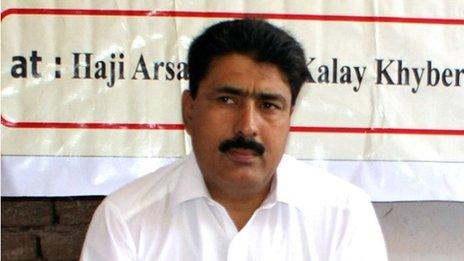White House: CIA has ended use of vaccine programmes
- Published
The BBC's Kim Ghattas spoke to Zubair Mufti from the WHO
The CIA has ended the use of vaccine programmes in its spying operations amid concerns for the safety of health workers, the White House has said.
In a letter to US public health schools, external, a White House aide said the CIA stopped such practices in August.
The CIA used a fake vaccine programme to try to find Osama Bin Laden before US special forces killed him in 2011.
The CIA's move comes after a wave of deadly attacks by militants on polio vaccination workers in Pakistan.
"By publicising this policy, our objective is to dispel one canard that militant groups have used as justification for cowardly attacks against vaccination providers," CIA spokesman Dean Boyd said in a statement to the BBC.

Analysis: Kim Ghattas, Islamabad
The decision will be welcomed in Pakistan, where polio has been spreading fast since the Taliban banned the vaccination campaign two years ago.
Before the statement from Washington, Prof Ibrahim Khan, an intermediary for the Taliban, told the BBC the militants wanted assurances that the vaccination programme wasn't being used for other purposes.
He said he was hopeful the Taliban would then lift the ban on the vaccine but he added it was also contingent on the success of peace negotiations with the government.
The talks are stalled for now. The ministry of interior has said access to the polio vaccination would lead the agenda of the next round of talks.

Sixty-six cases of polio have been declared in Pakistan since January, compared with only eight during the same period last year.
And more than 60 polio workers and security personnel were killed between December 2012 and April 2014, most of them in the Khyber Pakhtunkhwa province, according to Pakistani officials and humanitarian workers.
The geographical spread of the cases suggests they are mostly sourced to the north-western Waziristan tribal region, the BBC's Ilyas Khan reports from Islamabad. Militants controlling the region banned vaccination there, saying health workers may include American spies.
"This reassurance is coming at the right time and we sincerely hope this will contribute towards reaching the children," Zubair Mufti of the World Health Organization told the BBC. "Public health programmes should only be focused toward providing health to the people and not collateral things."
In a letter dated 16 May, the White House assistant to the president for homeland security and counter-terrorism, Lisa Monaco, wrote that CIA director John Brennan had directed the agency to cease "operational use of vaccine programmes".
"Similarly, the agency will not seek to obtain or exploit DNA or other genetic material acquired through such programmes," she wrote, adding the policy applied worldwide to US and non-US persons alike.
Genetic material obtained through a fake door-to-door hepatitis B vaccination programme reportedly helped the CIA confirm Bin Laden's whereabouts in the Pakistani city of Abbottabad.
The al-Qaeda leader was killed in a May 2011 raid by US special forces.
The Pakistani doctor accused of running the vaccination campaign remains in jail.
Dr Shakil Afridi was convicted of ties to militant groups, which he denies, and imprisoned in 2012. The move is widely seen as punishment for his helping the CIA.
Correspondents say he is regarded as a traitor by Pakistan's security agencies.
Mr Boyd, the CIA spokesman, said "many obstacles" stand in the way of vaccination programmes, including myths they cause use sterility or HIV and claims they are spy programmes run by Western governments.
"While the CIA can do little about the former, the [CIA] director felt he could do something important to dispel the latter and he acted," Mr Boyd said.
"It is important to note that militant groups have a long history of attacking humanitarian aid workers in Pakistan and those attacks began years before the raid against the Bin Laden compound and years before any press reports claiming a CIA-sponsored vaccination programme."
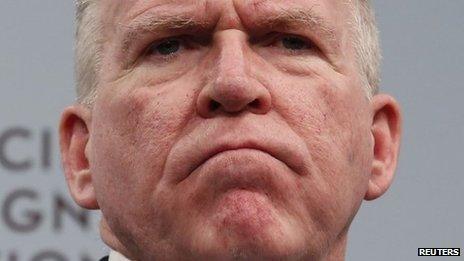
A letter said CIA Director John Brennan had ordered the CIA to halt use of the programmes
- Published20 May 2014
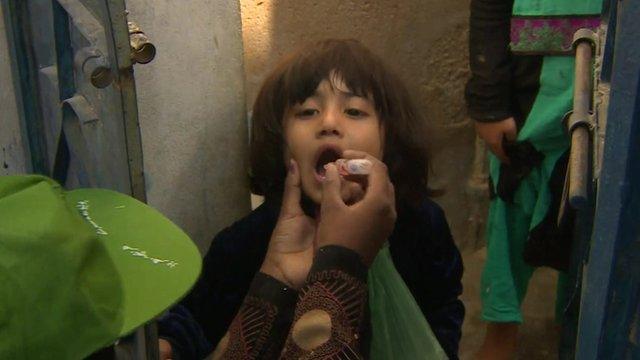
- Published10 May 2014
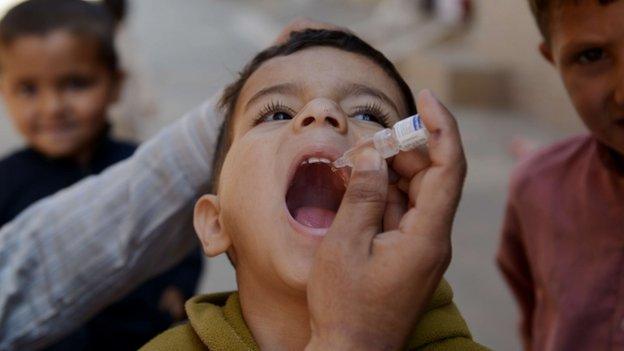
- Published13 May 2014
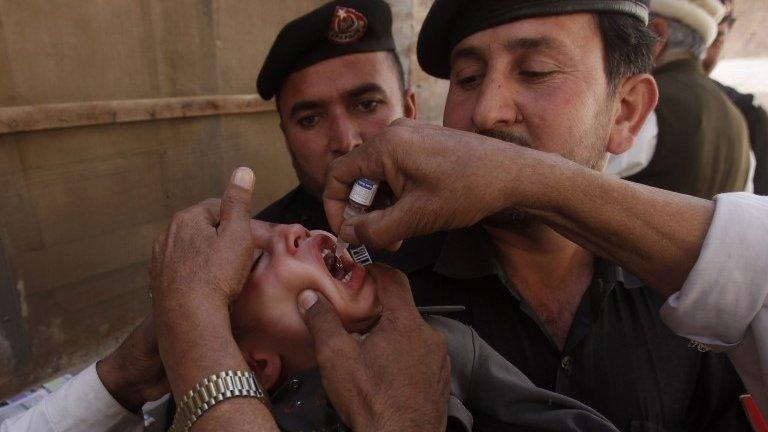
- Published1 March 2014
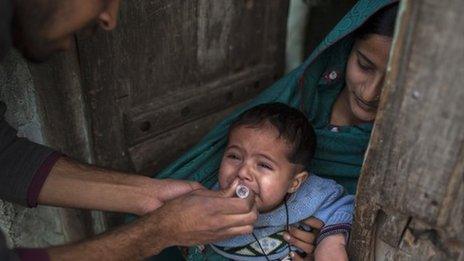
- Published15 March 2014
